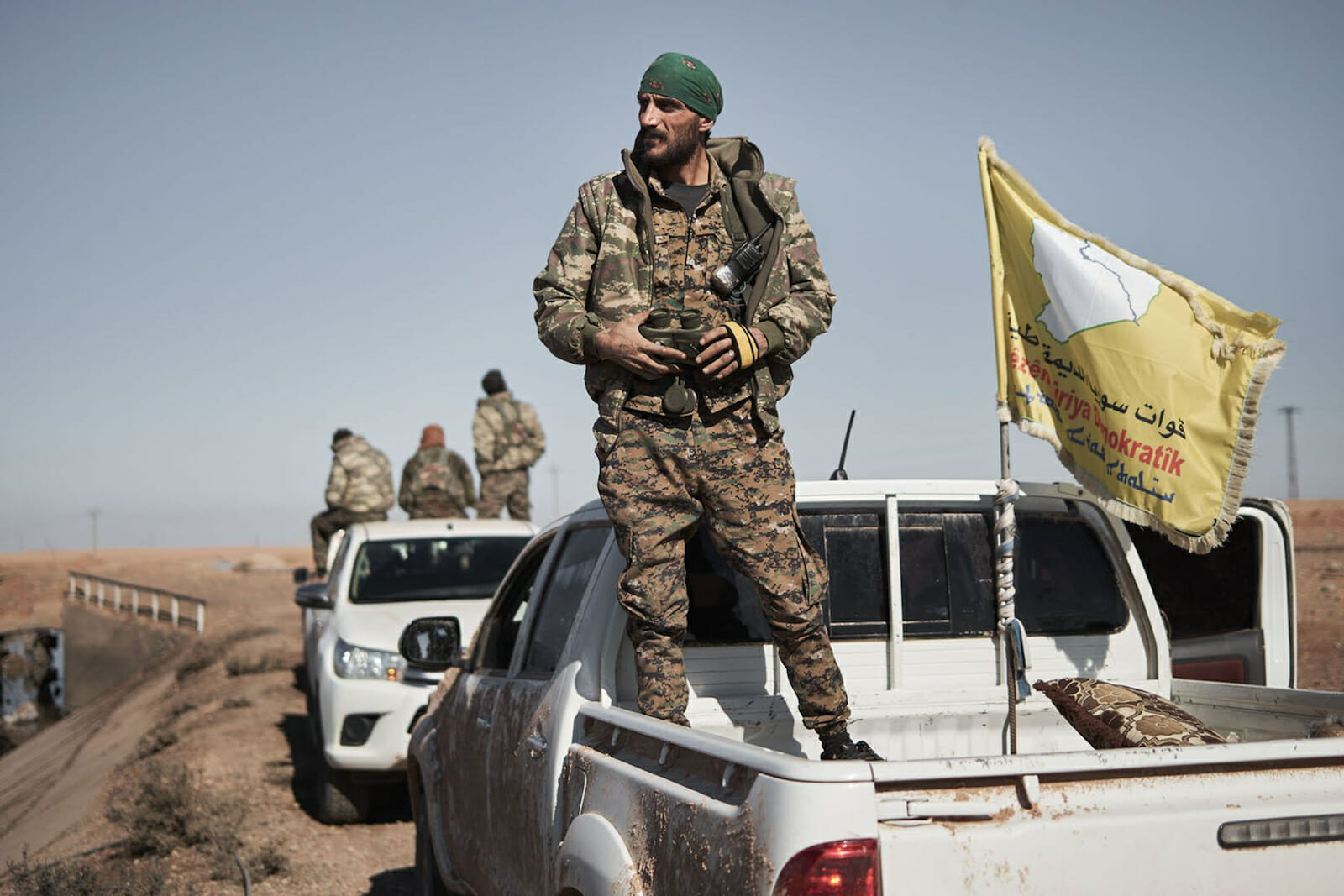
The Kurdish Quandary
With President Trump’s sudden decision to pull US troops out of Syria, made coincidentally soon after a phone conversation with Turkish President Erdogan, the Syrian Kurds now face an existential quandary. Once US troops are gone, Turkey will have a green light to invade northern Syria, as they did earlier this year in Afrin, to finish what they started: wiping out the Kurd-dominated Syrian Democratic Forces.
Rather than planning to try to fight such an invasion (a sure suicide mission), it appears that the SDF have reached an understanding with their former foe, Bashar al-Assad. On Wednesday, Kurdish politician Ilhan Ahmed said, “We are now in the phase of launching a new initiative [with Assad]. We will try by all means to put pressure on this regime to carry out a political settlement.” Assad’s troops were greeted with open arms in the SDF-held city of Manbij earlier this week, which had previously been surrounded by Turkish proxy forces.
This came one day after Erdogan in a speech promised, “To give the freedom of our Arab and Kurdish brothers and sisters there back…Needless to say, their security and peace is an issue of our own. As we have not left the Syrian Arabs to the mercy of DAESH, we will not abandon the Syrian Kurds to the PKK/PYD’s oppression.” The PKK, the Turks insist, is a terrorist group synonymous with the SDF. Such an assertion is tenuous, as the PKK is more of a Kurdish freedom fighter group than a terrorist organization, and the fact is that the PKK and SDF are only loosely affiliated, as they operate in and for different countries/national interests.
A Syrian-Kurdish alliance makes sense for both parties. Assad, by peacefully reintegrating the North, can quickly fill his regime’s coffers by tapping into the North’s abundant oil fields, farmland, and Euphrates freshwater. The latter is particularly important, as the Syrian Revolution was largely spurred by a drought. By reasserting control of the Turkey-Syria border, Assad can also cut down on cross-border movements of contraband and foreign jihadists. Both Assad and the Kurds have suffered heavy casualties from ISIS, so they can scratch each other’s backs by uniting against the Sunni extremist group, whose fighters streamed into Syria from the north, via Turkey and the former ISIS stronghold of Mosul. Obviously, border security would also protect the Kurds from a Turkish invasion.
Even if Assad starts to crack down on Kurdish civil rights, they can afford to bide their time. Erdogan’s regime is a ticking time bomb, due to an economic cocktail of soaring inflation, youth unemployment in excess of 20%, foreign currency debt, US trade tariffs, a looming housing bubble, and the likelihood of a global economic downturn in 2019…to say nothing of domestic opposition to Erdogan’s authoritarianism and social policies. If and when Turkey collapses, the Kurds will have a lot more leverage with Assad. He will be unlikely to want to jump into another civil war shortly after wrapping up a 7-year civil war against the Sunnis.
Besides, keeping the Kurds happy will allow Assad to affect a veneer of statesmanship and undermine his foes in Turkey. The Kurds can even be used as a counterweight in Assad’s relations with Iran. Iran is trying to exert as much influence as possible in Syria; Assad can use the Kurdish separatists as a deterrent against Iranian overreach since Iran has unrest in its own Kurdish region. Iran has been dealing with widespread protests in Kurdish cities, as well as a low-level Kurdish insurgency. A Syrian-Kurdish alliance would help to maintain domestic stability for the foreseeable future, a crucial goal in a war-torn country surrounded by belligerent neighbors.

